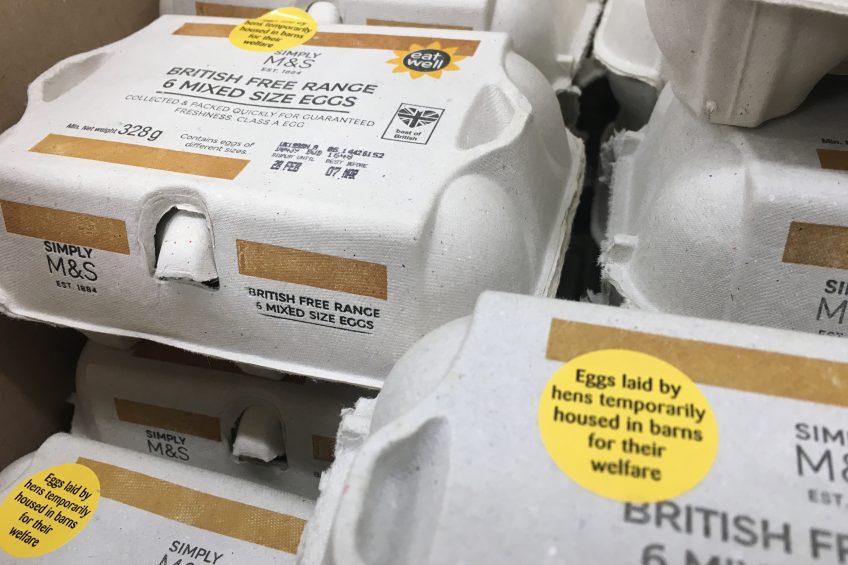Retailers committed to premium paid to for farmers

Marks & Spencer, Waitrose and Sainsbury’s have publicly committed to maintaining the premium paid to free-range farmers forced to keep their birds housed because of disease risk.
While other retailers are yet to make the same commitment in public, it is understood that most have expressed will support for farmers caught up in higher risk disease zones defined by Defra.
Farm leaders speaking at this year’s NFU conference poultry breakout session said there was confidence that farmgate payments would be maintained.
Gary Ford, who is chief poultry adviser for the union, said conversations so far with the major retailers had been positive. “We’re quite optimistic – we are asking them to honour their contracts and support the free-range sector in this difficult time.”
Free-range poultry has been subject to a housing order to mitigate the risk of H5N8 spreading across Europe since late November. Under EU rules, poultry meat and eggs can continue to be marketed as free-range for 12 weeks, a period which ends on 28 February.
The looming deadline has caused concern that eggs may be downgraded to barn, a move that farmers have warned would be financially ruinous.
Marks & Spencer has given direct assurance to producers. In a letter from its head of agriculture and fisheries, Steve McLean, the supermarket said: “In light of this uncertainty, we wanted to contact all of our producers directly and reassure you that we remain committed to source from M&S Select Farms, regardless of the zone you find yourself in and the description that regulations will place on the eggs you produce.
“All we ask is that you take the necessary veterinary advice prior to deciding the course of action for your flock and farm. We will continue to honour the free-range price for the eggs we purchase, regardless of whether your birds can range or not.”
The supermarket, and others, have already began adding stickers to eggs explaining that hens have been housed for their safety.













